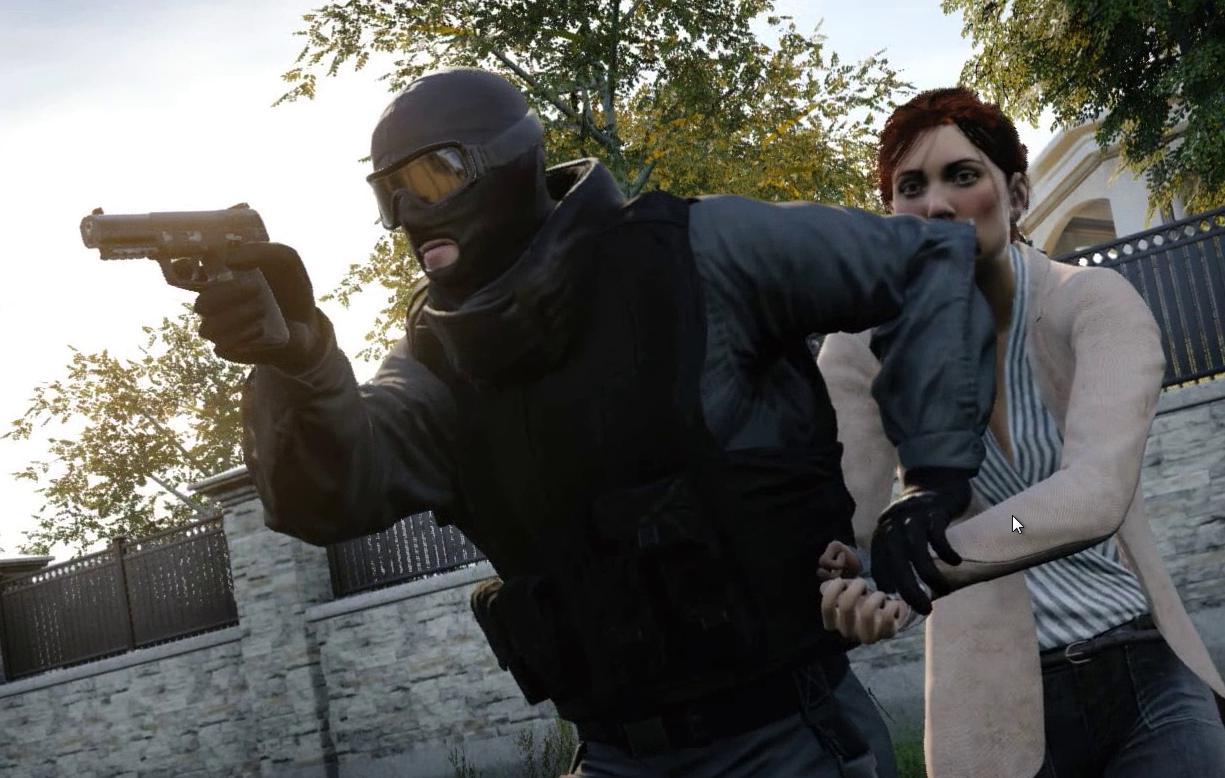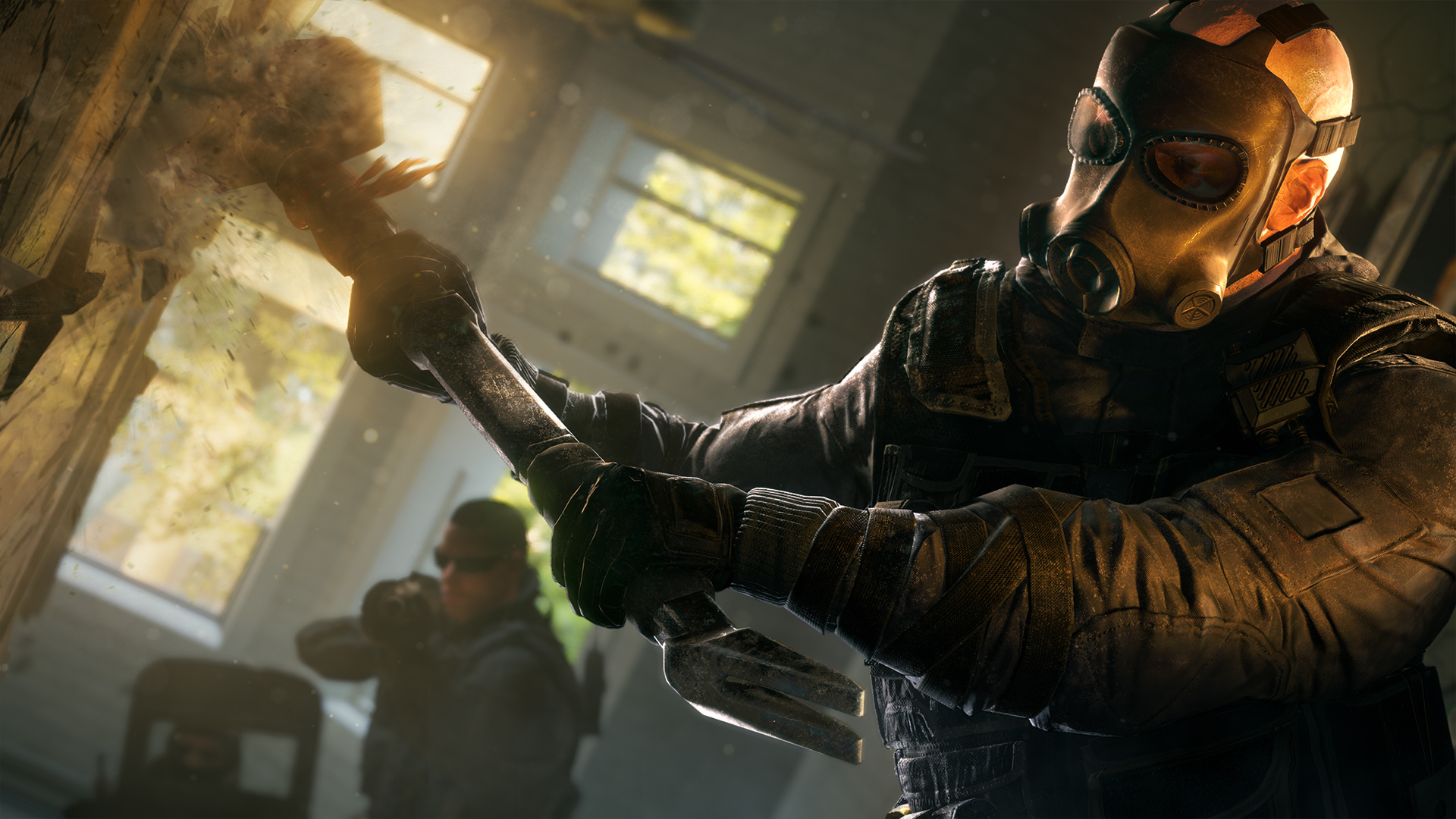2015 Personal Pick — Rainbow Six: Siege


Along with our group-selected 2015 Game of the Year Awards, each member of the PC Gamer staff has independently chosen one game to commend as one of the year's best.
I spent most of 2015 with no feelings for Rainbow Six: Siege. I honestly didn’t care. When we sent our latest issue to print, Ori and the Blind Forest was my Personal Pick, but I'm going to break the rules and claim an extra one, because since then I’ve spent most nights cowering in the corners of biker bars, storming the boardrooms of presidential aircraft and hiding drones in the laps of hostages. I’ve been playing Siege almost exclusively, and barely stopped to wonder why. Now, I’m going to wonder why aloud.
It’s a frightening game in many respects. The stony silence of a barricaded bedroom as your squad awaits its opponents is mentally draining, and squatting through an evacuated embassy with ears pricked for telltale signs (the sound of glass scrunching underfoot, a distant breach charge) is downright eerie. Ubisoft never contextualises these breach-and-clear scenarios, and that’s one of the game’s strengths. Rainbow Six: Siege is unusually cold. It lacks the jingoistic brouhaha of other real world shooters, and while it’s still a pretty macho game, it eases off the fistbumping for a more austere tone. Rainbow Six: Siege’s operators are faceless predators with no backstory and no interior life, and that feels like a deliberate move on the part of Ubisoft Montreal. You’re meant to be scared of them.
Rainbow Six Siege dials back a lot of the feelings we’ve come to expect from modern blockbuster shooters: independence, confidence, and that sense of virtual invincibility borne of instant respawns. Siege’s operators are all kitted out with special gadgets and abilities, but you’re never allowed to feel like a hero. Every corner turned in Siege feels like a risk, and even if you feel confident you’ve staked out an area, there’s no route or hidey-hole that can guarantee safety in this game. As James pointed out in his review, wit and cunning is likely to beat dexterity in most scenarios, but close collaboration is arguably a team’s strongest asset.

That paints a picture of a punishing game, and it is. While tutorial videos and singleplayer training ‘situations’ are present, neither are ample preparation for the pressure of facing other human beings. The inherent unpredictability of other people, mixed with the two dozen operators and fully destructible maps, results in a game that doesn’t feel small, despite having only two PvP modes in bomb disposal and hostage capture. It’s early days, and the scenarios are likely to become repetitive over time, but all forthcoming maps and modes will be free.
I’ve played a fair bit of Siege with randoms and had fun doing so. I’ve also played matches where no one on my team uttered a word. Predictably enough the latter scenario is most common, but unlike what many are claiming, silence doesn’t break the game. In fact, I’d implore you to go ahead and try the game even if you don’t have a solid crew or even a headset. At this early stage, Rainbow Six: Siege has a healthy, non-toxic community, and collaboration is possible without speech—especially on PC (though the forthcoming Hardcore playlist will necessitate headsets, given the lack of team outlines).
Siege isn’t like any older Rainbow Six games you’ve played, but you know what? Good. Let go. This is an incredible shooter, frightening and liberating in equal measure, in the way it rewards brain over brawn and removes the focus on twitch—a good thing if you’re getting on like me. You might not even shoot a bullet during an average Siege round, and that’s okay. If Ubisoft can keep the community happy with regular communication and updates, then only bad luck can stand in Siege’s way.
The biggest gaming news, reviews and hardware deals
Keep up to date with the most important stories and the best deals, as picked by the PC Gamer team.

Shaun Prescott is the Australian editor of PC Gamer. With over ten years experience covering the games industry, his work has appeared on GamesRadar+, TechRadar, The Guardian, PLAY Magazine, the Sydney Morning Herald, and more. Specific interests include indie games, obscure Metroidvanias, speedrunning, experimental games and FPSs. He thinks Lulu by Metallica and Lou Reed is an all-time classic that will receive its due critical reappraisal one day.

